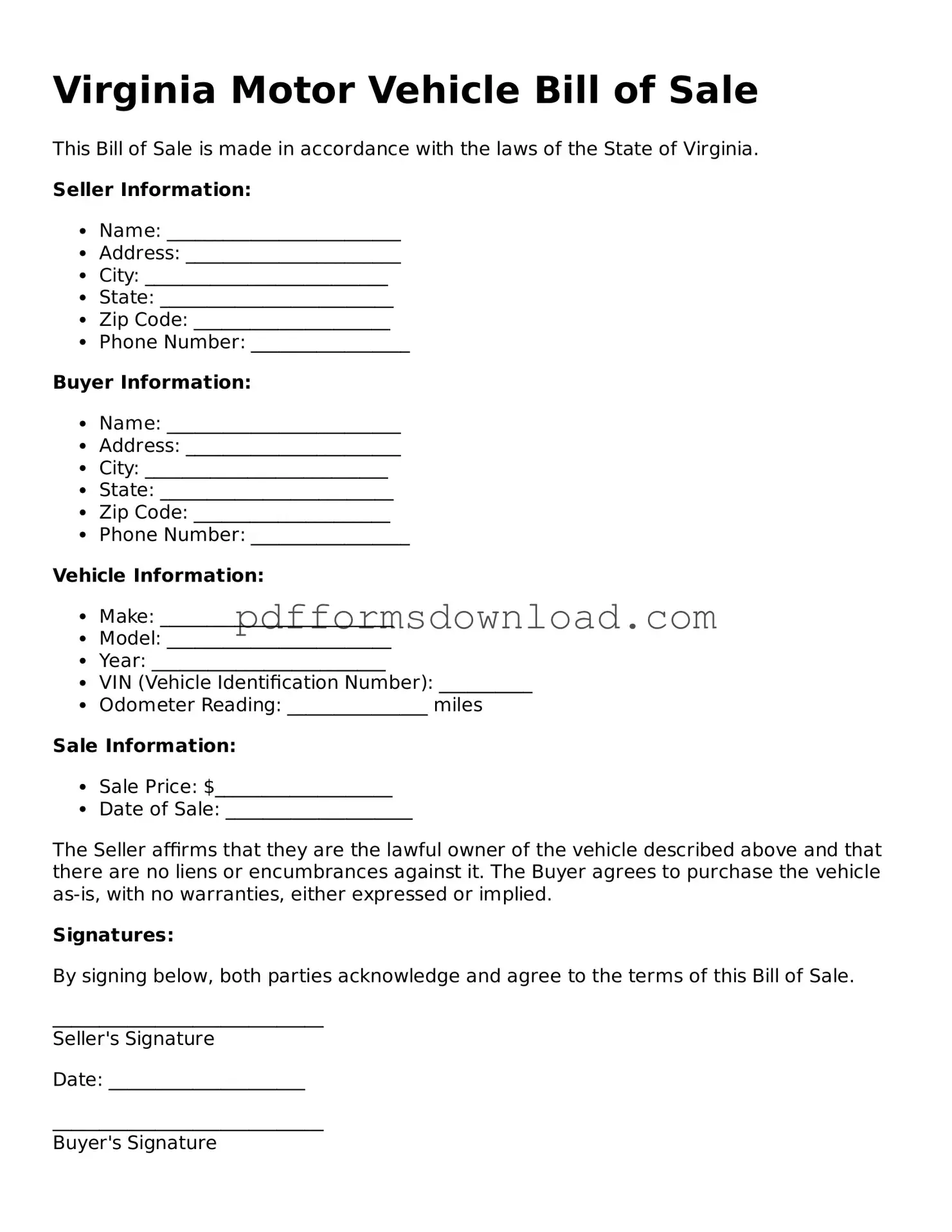What is a Virginia Motor Vehicle Bill of Sale?
A Virginia Motor Vehicle Bill of Sale is a legal document that records the sale of a vehicle between a seller and a buyer. This form serves as proof of the transaction and includes important details such as the vehicle's identification number (VIN), make, model, year, and the purchase price. It protects both parties by clearly outlining the terms of the sale and can be used for registration purposes with the Virginia Department of Motor Vehicles (DMV).
Do I need a Bill of Sale to sell my vehicle in Virginia?
While a Bill of Sale is not legally required to sell a vehicle in Virginia, it is highly recommended. This document provides a written record of the transaction, which can be useful if disputes arise in the future. Additionally, having a Bill of Sale can facilitate the transfer of ownership and help the buyer register the vehicle more easily.
What information is required on the Bill of Sale?
The Virginia Motor Vehicle Bill of Sale must include specific information to be effective. This includes the names and addresses of both the seller and buyer, the vehicle's make, model, year, and VIN, the sale price, and the date of the transaction. It’s also a good idea to include any warranties or conditions agreed upon during the sale.
Can I create my own Bill of Sale?
Yes, you can create your own Bill of Sale as long as it includes all the necessary information. However, using a standardized form can help ensure that you don’t miss any important details. The Virginia DMV provides a template that can be used, which simplifies the process and ensures compliance with state requirements.
Is a Bill of Sale necessary for a gift of a vehicle?
Even if you are gifting a vehicle, it is still advisable to complete a Bill of Sale. This document can help clarify that the vehicle was given as a gift and not sold, which can be important for tax purposes and registration. Including a statement that the vehicle is a gift can help avoid any misunderstandings in the future.
What should I do after completing the Bill of Sale?
After completing the Bill of Sale, both the seller and buyer should retain a copy for their records. The seller should also submit a notice of transfer to the Virginia DMV to officially notify them of the sale. This helps protect the seller from any future liabilities associated with the vehicle. The buyer will need the Bill of Sale to register the vehicle in their name.
Where can I obtain a Virginia Motor Vehicle Bill of Sale form?
You can obtain a Virginia Motor Vehicle Bill of Sale form from the Virginia DMV website or at your local DMV office. Many online legal resources also provide templates that can be easily filled out. Be sure to use a reliable source to ensure that you have the most current and valid form.

